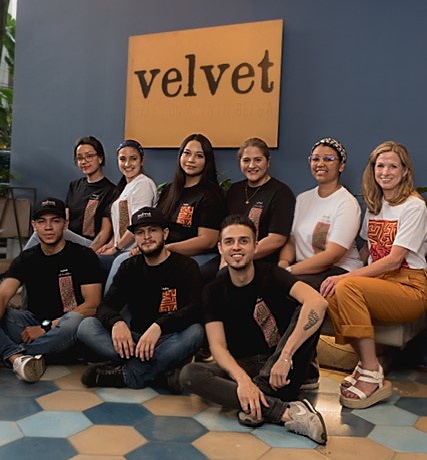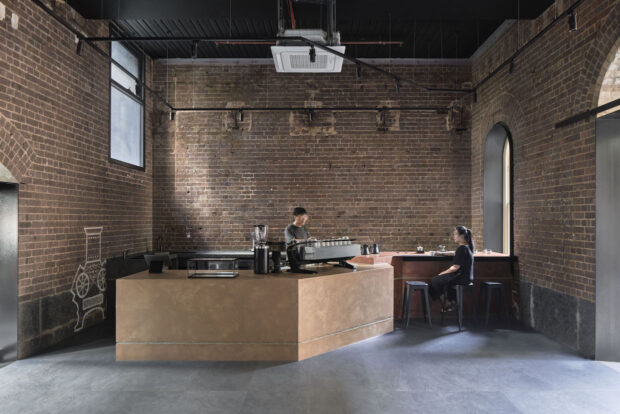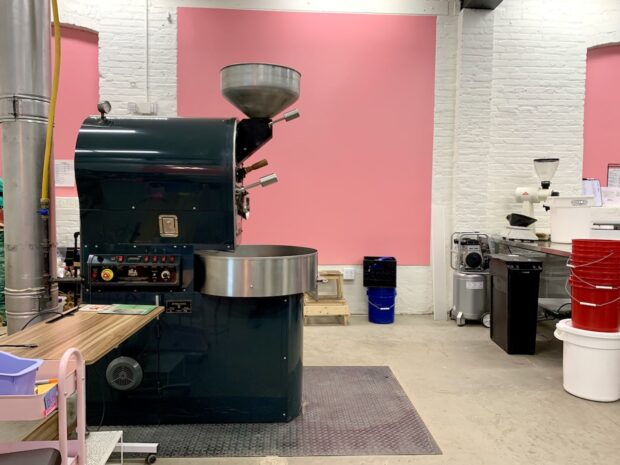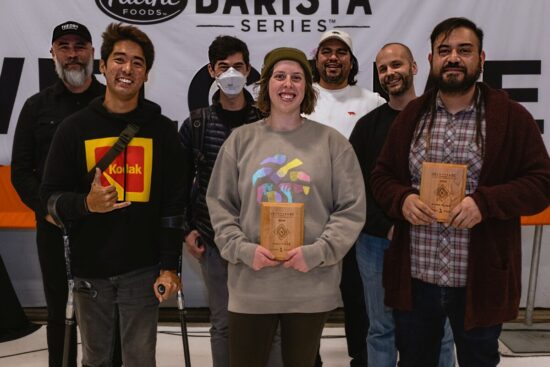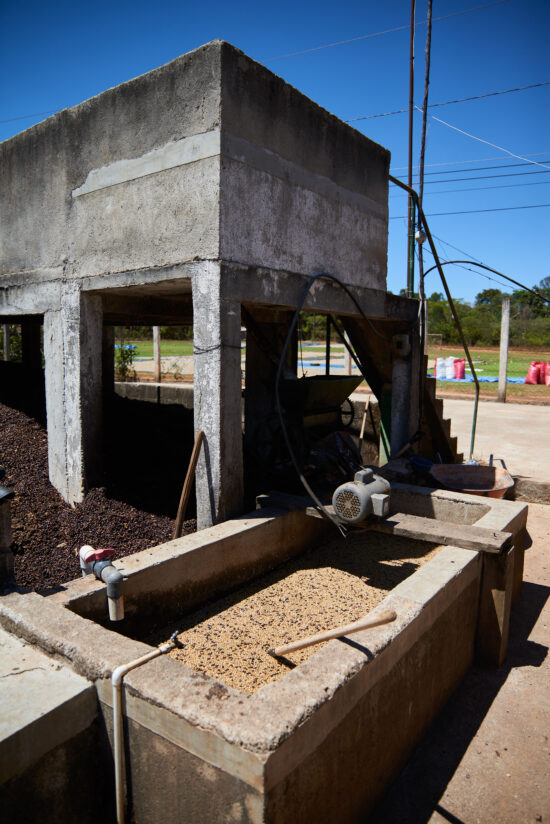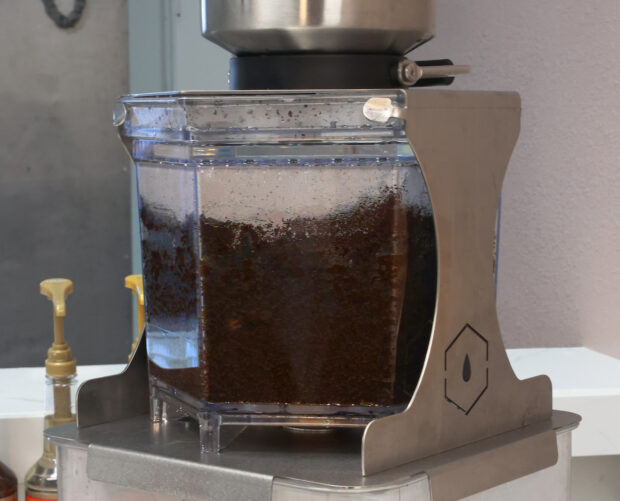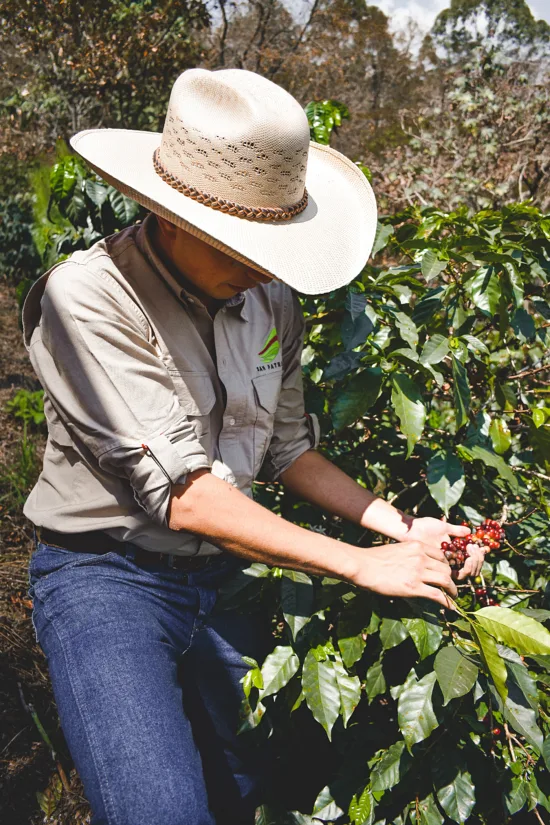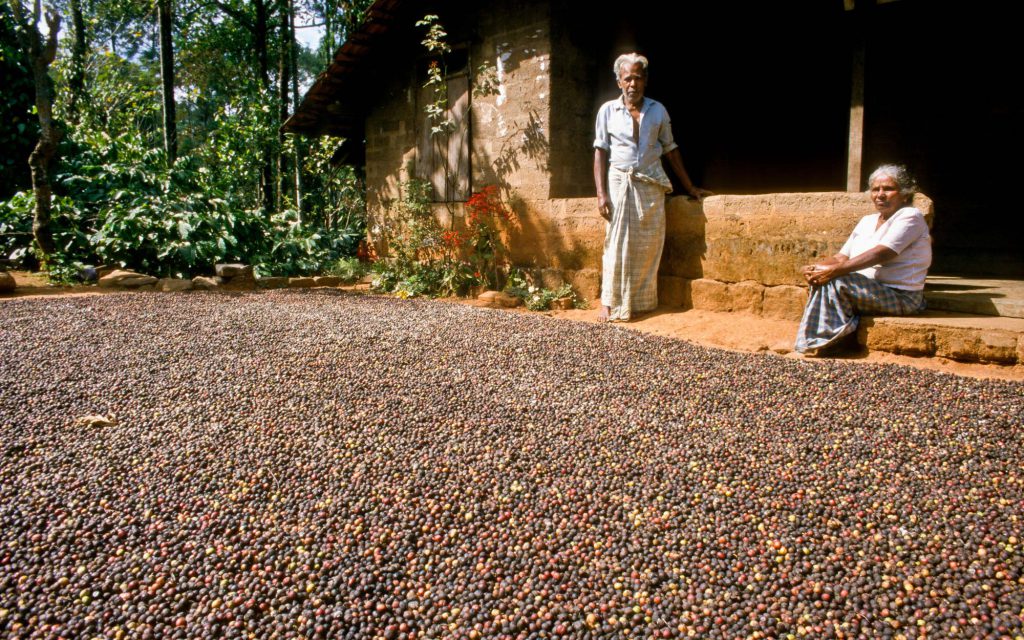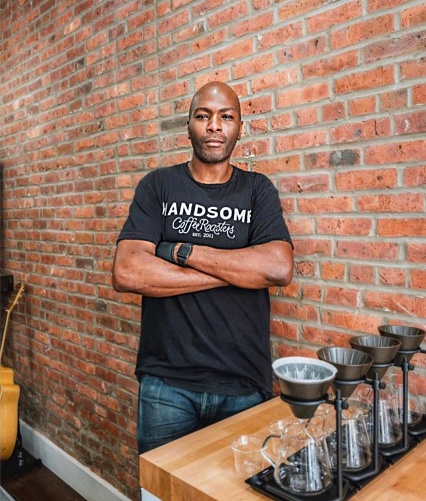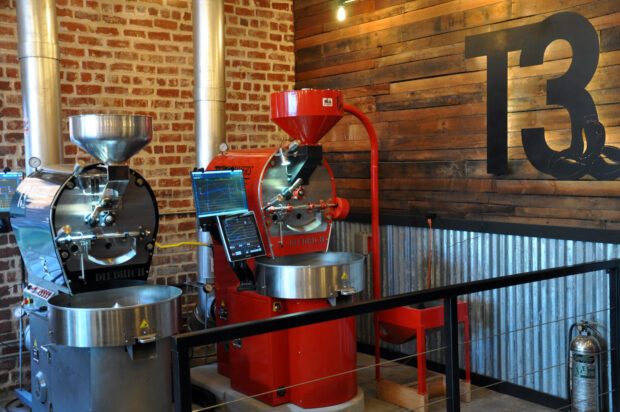The most affordable Keurig coffee maker is available exclusively at Walmart and comes at a sweet price of only $59.00. In this article, you’ll find out how good it really is, and also find additional information like how to clean it, or do you need a water...
You need an exclusive invite to drink this coffee
You need an exclusive invite to drink this coffee
You need an exclusive invite to drink this coffee
You need an exclusive invite to drink this coffee
You need an exclusive invite to drink this coffee
You need an exclusive invite to drink this coffee
Here’s How to Change Keurig 2.0 Water Filter Easily
Not sure how to change Keurig 2.0 water filter? Here are step-by-step instructions that will help you do it quickly and easily. Keurig water filter should be changed every 2 months or 60 tank refills. The water filter is located inside the water tank, on the valve at...
Quick French Press Iced Coffee (No, It’s Not Cold Brew)
This is the absolute fastest way to make French press iced coffee. Just forget about cold brew concentrate – with this Quick French Press Iced Coffee Recipe you can have your iced coffee ready in 5 – 6 minutes. Who doesn’t like the French press?! It’s...
The coffee rose for assessing Anaerobic coffee
I just came across this really neat tool to assess anaerobic coffees. I haven't used it for cupping yet. I'm not sure I will like it either because the idea of lowering the score of the coffee just because it tastes has some thyme flavors. At the same time I...
Three US Coffee Championship Events Are Heading To Rancho Cucamonga
This article is from the coffee website Sprudge at http://sprudge.com. This is the RSS feed version. The 2024 US Barista Championship, Brewers Cup, and Cup Tasters will take place March 15-17 at Klatch Coffee Roasters in Rancho Cucamonga, California.
The Origin Story of Turtle Island Coffee in Vancouver, B.C.
A new Indigenous-owned coffee company based in Vancouver, British Columbia, called Turtle Island Coffee has launched with the goal of exposing more people to high quality specialty coffee and Indigenous...
Get Ready for The Barista League’s 2024 Season
The Barista League has announced 12 competitions across four continents. BY J. MARIE CARLANBARISTA MAGAZINE ONLINE Photos courtesy of The Barista League When The Barista…
Get Ready for The Barista League’s 2024 Season
The Barista League has announced 12 competitions across four continents. BY J. MARIE CARLANBARISTA MAGAZINE ONLINE Photos courtesy of The Barista League When The Barista…
Get Ready for The Barista League’s 2024 Season
The Barista League has announced 12 competitions across four continents. BY J. MARIE CARLANBARISTA MAGAZINE ONLINE Photos courtesy of The Barista League When The Barista League announces new events, it’s worth paying attention! This year, the schedule will be...
Weekly Coffee News: EUDR and Africa + More Celebrity Coffee
Welcome to DCN’s Weekly Coffee News. Keep up with all the latest coffee industry stories and career opportunities by subscribing to DCN’s newsletter. Tell our editors about your news here. Report: Small-Scale Farmers in...
Do Higher Coffee Prices Mean More Money For Farmers? A Story From Sumatra Shows It’s Complicated
This article is from the coffee website Sprudge at http://sprudge.com. This is the RSS feed version. Since coffee costs more now than ever, do those coffee prices impact the amount of money earned by coffee farmers?
Coffee News Recap, 2 Feb: Applications open for Australia’s Richest Barista 2024, De’Longhi reports 4.6% revenue increase after La Marzocco move & other stories
Every Friday, Perfect Daily Grind rounds up the top coffee industry news from the previous week. Here are this week’s coffee news stories. The word of the week is: expansion. Mon, 29 Jan AeroPress launches limited-edition Clear Pink brewer. The coffee brewer is made...
Watch The 8 Best Coffee Videos Vying For Sprudgie Awards
This article is from the coffee website Sprudge at http://sprudge.com. This is the RSS feed version. The best coffee videos from 2023 featuring Cafe Imports, Aramse, Nguyen Coffee Supply, Wildly, Mirror Coffee Roasters, Alto Stories, Quek Shio, and Cafe Retiro.
Robusta is great and has untapped potential
I live in the US and my typical choice of coffee is lightly roasted Ethiopian pour overs. I generally love acidity and fruit flavors in my coffee. My experience with Robusta has often been poor. Very dark, roasty and maybe chocolatey. I participated in the Hoffman...
Design Details: Brewing Reinvented at ULA Café in Melbourne
Welcome to Design Details, an ongoing editorial feature in Daily Coffee News focused on individual examples of coffee shop architecture, interior design, packaging design or branding. If you are a coffee...
Robert Downey Jr.’s New “Happy Coffee” Is Really Depressing
This article is from the coffee website Sprudge at http://sprudge.com. This is the RSS feed version. Robert Downey Jr. and Craig Dubitsky team up for Happy Coffee.
Out Now: The February + March 2024 Issue of Barista Magazine!
In our new issue we feature Lisa Lawson from Glasgow, Scotland, take a look at the newest grinders, explore spring drink inspiration, see how more women are getting involved in coffee tech, and much more! BY SARAH ALLENBARISTA MAGAZINE We’re stoked to announce the...
The coffee industry’s biggest competition: The story of the World Barista Championship
Every year, the global coffee industry gears up for one of its most exciting and groundbreaking competitions: the World Barista Championship. For more than two decades, the WBC has been one of the biggest catalysts for change and innovation in specialty coffee, and...
The 2023 Specialty Coffee Transaction Guide Has Landed
The 2023 edition of the Specialty Coffee Transaction Guide (SCTG) guide went live today, providing actors throughout the coffee chain a data-driven tool for green coffee price discovery. The full...
Espro great until I needed replacement filter ☹️
I've had an Espro P7 for nearly four years after seeing glowing praise on this sub (to which I later contributed). Before I bought the P7 I looked at the replacement parts available and they seemed like a solid company in that they sold e.g. replacement filters...
New Bill Requires More Kona In Your Kona Coffee
This article is from the coffee website Sprudge at http://sprudge.com. This is the RSS feed version. Currently a coffee only need to be 10% Kona to be labeled as such.
What’s the best and worst part about owning and running a coffee shop?
I'm not interested in getting into it myself, as I have no experience in the service industry, no real appetite for risk and no desire to run a business in general. But sometimes I think about it and I wonder what's the most enjoyable thing about it and...
minimum dose size?
I use the Hario switch to brew my coffee and am trying to reduce my caffeine consumption. Hence I would like to brew smaller cups of coffee. I am currently using 10g of coffee with 160g of water. (1:16 Ratio) I am wondering if there is a minimum amount of coffee...
[CAFE OWNERS] Background before starting a shop?
I’ve worked in coffee for 6 yrs as a barista and shift supervisor and have passion for it. I’ve decided that I want to open my own place in the future and so I’ve been doing the research to make a business plan. Lately, however, I’ve begun to realize just how many...
You need an exclusive invite to drink this coffee
What is an Ethiopian coffee ceremony?
In Ethiopia, where the first ever coffee plant was said to be found, coffee is an extremely important part of their culture. Coffee ceremonies in Ethiopia are considered to be the most important social occasions in many villages, and it’s a major sign of respect and friendship to be invited to one.

Photo: @TeddyEthiopia, Local Guides Connect
This isn’t your average meetup for a cup of coffee, or “bunna,” as it’s called in Ethiopia. At an Ethiopian coffee ceremony, coffee beans are roasted right in front of you and boiled in a coffee vessel similar to the ibriks, which is commonly used to make Turkish coffee.
The ceremony is conducted by the woman of the house or a younger woman in the household, and is performed up to three times a day — meaning that anywhere from 6 to 9 hours is dedicated to coffee.
It begins by spreading fresh aromatic grasses and flowers across the floor and by burning incense to ward off evil spirits. A round-bottomed black clay coffee pot, known as a jebena, is filled with water and placed over hot coals.
Next, a handful of green coffee beans are cleaned and heated in a pan over hot coals or a small fire. They are stirred and shaken to get rid of the husks and to make sure they’re clean.

Photo: @TeddyEthiopia, Local Guides Connect
Once the beans are clean, they’re slowly roasted right in front of you. They’re constantly stirred or shaken to make sure they’re roasted evenly, and they’re usually roasted to a medium brown shade.
To grind the freshly roasted beans, the hostess will use a tool similar to a mortar and pestle. The “mortar,” a heavy wooden bowl, is called a mukecha, and the “pestle,” called a zenezena, is a wooden or metal cylinder with a blunt end. They’re crushed to a coarse-ground coffee and are ready to be brewed.
By this time, the water in the jebena should be ready for brewing. The fresh ground coffee is added to the water, brought to a boil, and removed from heat.
Once the coffee is ready to be served, the hostess will bring out a tray of small, handless-less ceramic or glass cups positioned very close together. The coffee is poured in a single stream from about a foot above, ideally filling the cups without having to stop the pour. This helps prevent coffee grounds from ending up in the cup.

Photo credit: New Shrub
In Ethiopian culture, it’s common for the youngest child to serve the oldest guest the first cup of coffee. After that, the person preparing the coffee serves everyone else. Guests may add sugar if they like, but milk is not typically offered.
There are three servings similar to this, and in order are called abol, tona, and baraka. Each serving is progressively weaker than the one before, and each cup is said to transform the spirt. The third serving, baraka, is considered to be a blessing to those who drink it.
Different villages may change different parts of the process. For instance, during the roasting process, the hostess might add cardamom, cinnamon, or cloves to the mix. Others may filter the coffee to remove grounds. In the countryside, coffee may be served with salt instead of sugar.
Regardless of where you go in Ethiopia, though, you’re going to want to be invited to one of these ceremonies. And if you’re lucky enough to, it’s a major honor.
WATCH THIS VIDEO:
Related: How Turkish coffee is made





